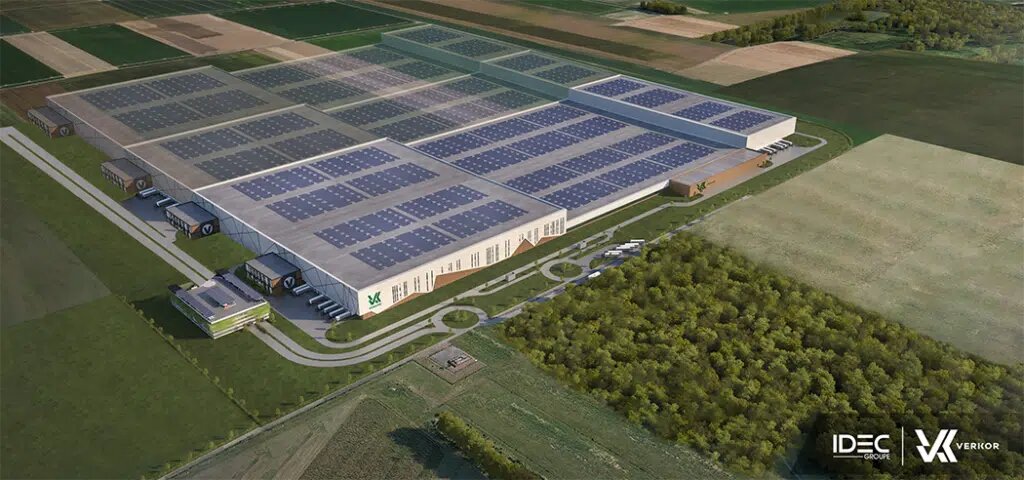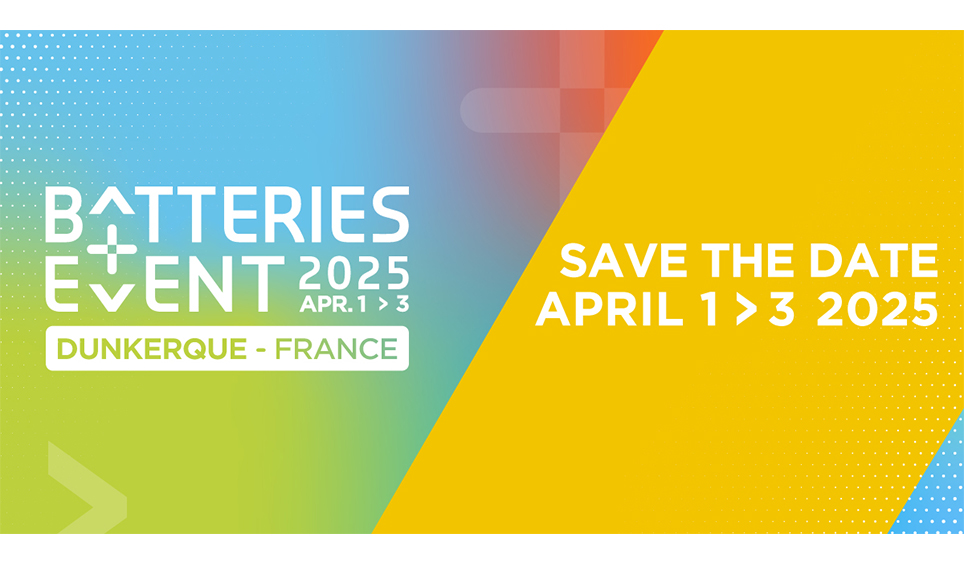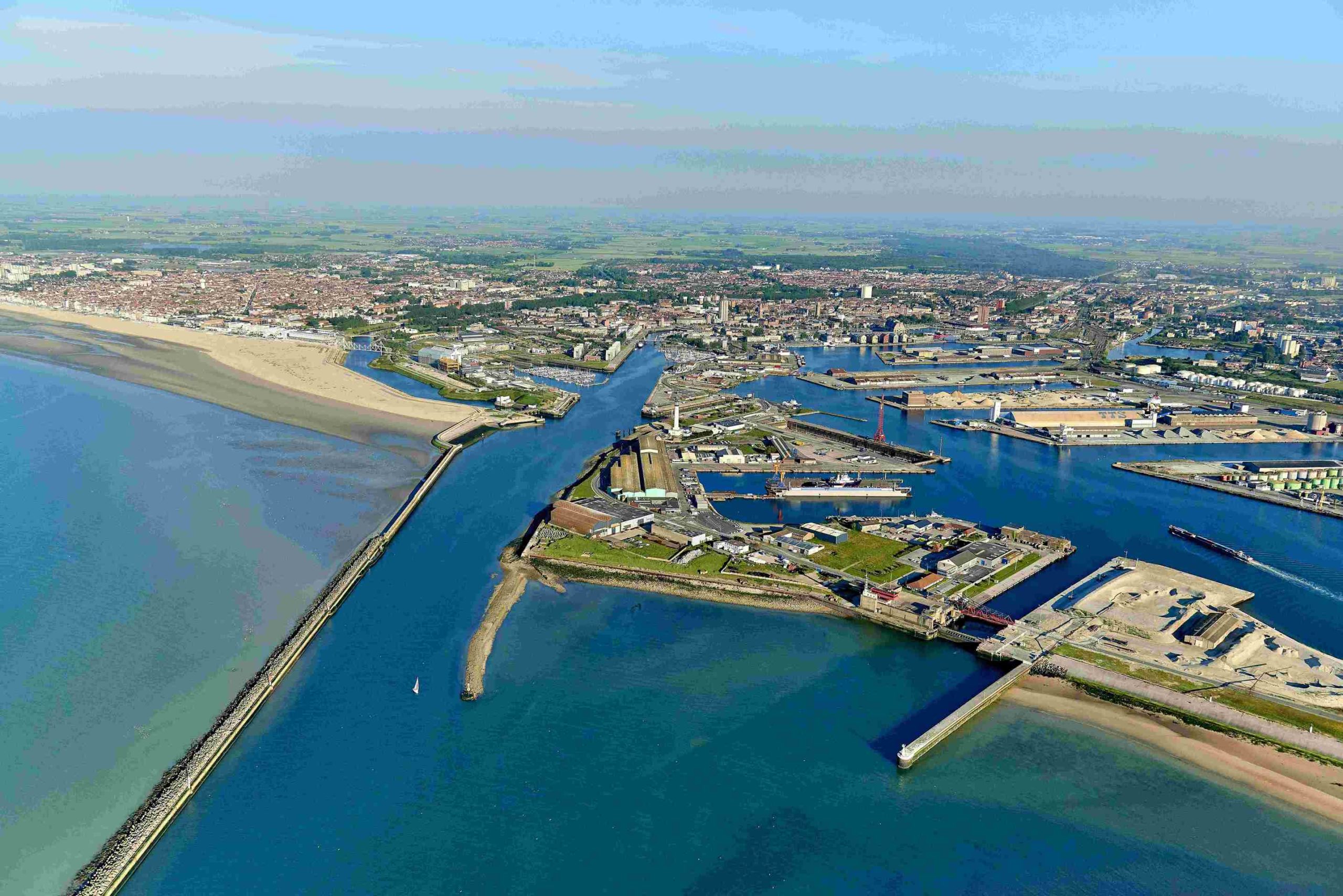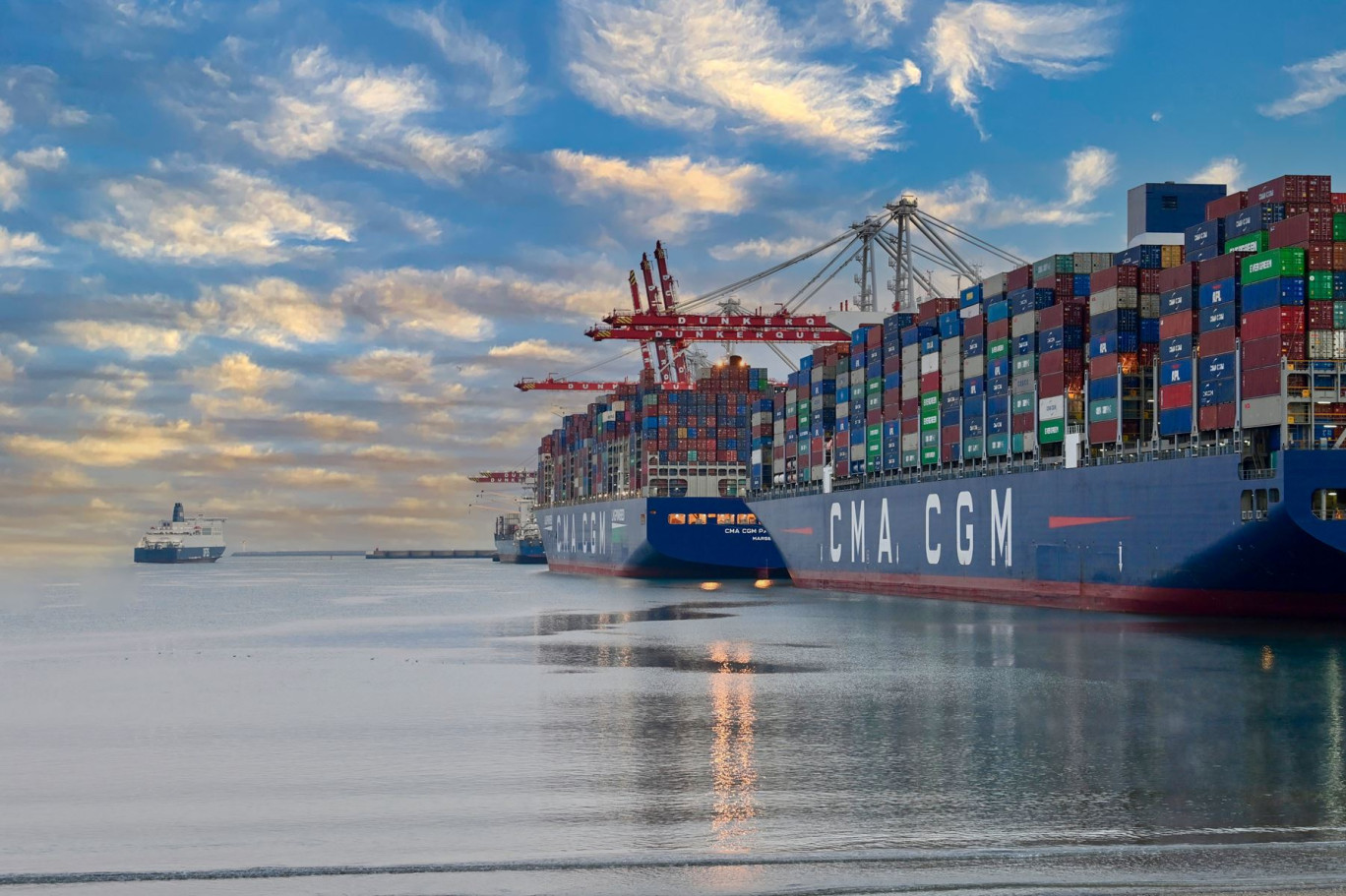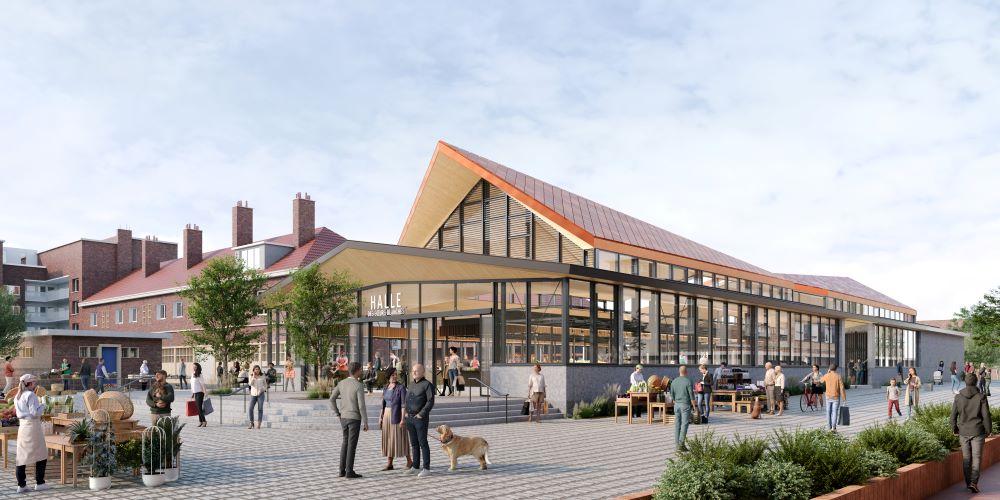WHAT DOES THIS PROJECT INVOLVE?
- French company Verkor is going to set up a “Gigafactory” for low-carbon battery manufacturing in the Dunkirk area. It will be located on an 80-hectare plot of land (extendible) located in the Major Industries Area of the Grand Port Maritime of Dunkirk. Between now and 2030, the company will be in a position to supply around 300,000 high performance batteries for top of the range electric vehicles or sports cars such as those made by Alpine (Renault Group).
- The Verkor Gigafactory Dunkirk will create up to 1,200 direct jobs in the 1st phase and almost 2,000 over time.
- The total investment in this project amounts to 2.5 billion euros.
- With 3 plants of this type, the Hauts-de-France region has positioned itself as a real “Battery Valley”.
WHO IS VERKOR?
VERKOR is a French company founded in 2020 through the joint efforts of 6 stakeholders who saw the need to tackle climate change challenges and make France (and Europe) a key player in battery manufacture. Its mission? “To build the mobility industry of tomorrow.” Its ambition? “To increase the manufacture of low‑carbon batteries to meet the growing demand (…)”. After the construction of the Verkor Innovation Centre in Grenoble for the purposes of R&D, the next question was where to set up its first “Gigafactory”. Dunkirk was chosen and announced on Monday 1 February 2022.
WHY DUNKIRK?
In competition with around 40 sites in France, Spain and Italy, the choice of Dunkirk was far from certain. Dunkirk, a key territory for France’s industrial decarbonisation strategy, was finally revealed as a logical choice that rewards the work of local socioeconomic stakeholders. “This announcement confirms Dunkirk’s return to the top thanks to its industry’s energy transition in an effort to combat global warming.” (P. Vergriete, mayor of Dunkirk and Chairman of the Greater Dunkirk Urban Council (CUD)).
THE MAJOR INDUSTRIES AREA OF THE PORT OF DUNKIRK, A MAJOR ASSET FOR THE GIGAFACTORY
As we wrote in the article “Dunkirk in the pole position to host industrial projects”, (SEE: ARTICLE), the territory’s numerous virtues influenced the final choice.
- The presence of an energy hub, including the recently opened 50 MW electrical substation in Bourbourg.
- Major roads, particularly the A16 and A25.
- The presence of Dunkirk International Logistics and the Major Industries Areas, two areas certified as “turnkey” sites.
- The employment-skills pool, to find the future talent that will work on the site.
The project will be developed on almost 150 hectares in the Major Industries Area, in the Grand Port Maritime of Dunkirk. Works will begin in 2023 and the first batteries will roll off the assembly line in 2025.
AN EMPLOYMENT CREATION PROJECT
The plant will eventually create more than 2,000 jobs. Patrice Vergriete (Chairman of the Greater Dunkirk Urban Council (CUD) and mayor of Dunkirk) adds: “It’s a historic turning point for our territory”. The site has several development phases: the 1st phase will provide a 16 Gw/h production capacity and 800 to 1,000 jobs. At full capacity, by 2030, the plant will provide 50 Gw/h and have a potential 2,000 direct jobs and 5,000 indirect jobs. Dunkirk’s renewable and low-carbon energy mix will help to create batteries with a carbon footprint 4 to 5 times smaller than Chinese batteries.
WHY ARE THERE SO MANY BATTERY-RELATED PROJECTS IN FRANCE?
In 2021, almost 1.7 million vehicles were registered* in France (SOURCE: ARGUS DIRECTORY). In a rather gloomy market disrupted by the global shortage of semiconductors, sales of electric vehicles are in good shape. They have reached more than 162,000 units or an increase of 46% in 2021, and that’s just the beginning. A near revolution is under way across the entire sector as the end of the sale of internal combustion engine vehicles is set for 2035. Logically, this growth in electric car sales involves an ever-increasing demand for batteries and a higher need for rare metals.
The list of popular electric vehicles includes* (SOURCE : CAPITAL):
- Tesla Model 3: 24,911 units
- Renault Zoe: 23,573 units
- Peugeot e-208: 17,858 units
WHERE ARE THE MOST POPULAR ELECTRIC CAR BATTERIES CURRENTLY MANUFACTURED?
At present, the 3 most popular electric models in France are as follows: (SOURCE: AUTOMOBILE PROPRE):
- The Tesla Model 3 is almost 100% made in the USA except for certain batteries that are manufactured in Japan by Panasonic.
- The Renault Zoe has been produced in Flins (78) since 2012. It uses Korean batteries manufactured by LG Chem which are produced near Wrocław in Poland and assembled in Flins.
- The Peugeot e208 and the majority of the Stellantis models have batteries with Chinese cells (produced by CATL) that are assembled in Slovakia.
The sharp rise in demand will reshuffle the deck and the Hauts-de-France is ready for it.
THE HAUTS-DE-FRANCE AUTOMOTIVE INDUSTRY IN TRANSITION TOWARDS ALL-ELECTRIC VEHICLES
The Hauts-de-France, France’s leading automotive region (NORD FRANCE INVEST FILE): There are three global car manufacturers in the region: Toyota, Renault and Stellantis (formerly PSA). The region has numerous original equipment manufacturers and subcontractors, which amount to more than 55,000 employees in the industry. Faced with the major ecological challenges of the coming decades and the objective of decarbonising the industry, the automotive sector must reinvent itself and not miss the shift to all-electric vehicles. This is why the subject of strategic metals is a common topic of conversation.
DUNKIRK, AT THE HEART OF THE CHALLENGES OF THE NATIONAL STRATEGIC METALS PROJECT
Strategic metals cover around fifty metals that are essential for the industry, cutting-edge green technology and high tech. These raw materials have been at the heart of global economic and geopolitical challenges for some years. They are indeed essential to the industry and manufacture of high-tech products intended for the general public. These materials are found in the manufacture of semiconductors, photovoltaic cells, flat screens, optical fibres and electric batteries.
A major topic when it comes to successful decarbonisation, France wishes to reduce its dependency on strategic metal imports, particularly on China which has a virtual monopoly. As with rare earth metals, recycling will limit the need to produce these metals.
Philippe Varin (former CEO of the PSA Group) submitted a report on this sensitive issue in early January 2022. It features two proposals: it recommends that a public/private investment fund is created and suggests that two dedicated platforms are devised. The first in Dunkirk for batteries and the second in Lacq (near Pau) for permanent magnets. These two sites will help to secure 20 to 30% of national needs. The Hauts-de-France region has a trump card to play with the NATIONAL TEAM2 BUSINESS CLUSTER dedicated to recycling and industry ecology.


